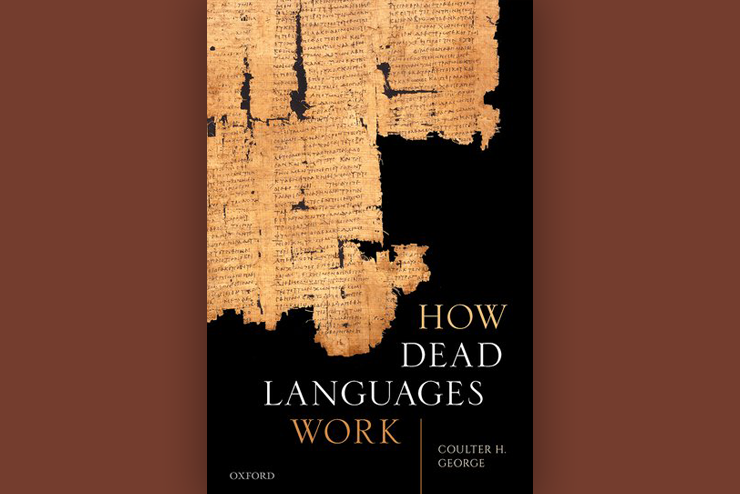How Dead Languages Work, by Coulter H. George (Oxford University Press; 240 pp., $25.00). If, like University of Virginia classics professor Coulter George, you find dead languages an “endless source of intellectual delight,” then perhaps it’s time to explore Ancient Greek, Latin, Old English, Sanskrit, Old Irish, and Welsh. Admittedly, that esoteric list won’t help you find a restroom overseas, though if you’re traveling in Israel, he does include a chapter on Hebrew—albeit of the biblical variety—as the only language in his book from outside the Indo-European family.
As in many scholarly texts, pragmatism goes AWOL in this slim tome. Donnish etymologic, syntactic, and historic asides spice up an abstruse topic. By the end, George achieves his main objective: “to show readers just how much they miss when they read the great works of ancient literature in translation—no matter how good the translation.”
Before the vultures finally devour the linguistic carrion, let’s deal with the doubting Thomases who will belittle the volume’s primary aim as academic carping. Remember the foundational Judeo-Christian Garden of Eden story about the Fall of Man, when Adam and Eve ate the apple after the serpent tempted them? You do? Then you must have read a bad translation.
George explains that, in Latin, short-a mălum means “bad.” Long-a mālum means “apple.” The earliest Hebrew version of Genesis 2:17 did not identify the fruit. Unfortunately for Western posterity, the subsequent fourth-century Latin Vulgate’s translation, de ligno autem scientiae boni et mali, or “but of the tree of knowledge of good and evil”—left room for some careless Medieval scribe, or prankster, to transpose “apple” with “evil.”
Now that I’ve gotten your attention, let me try to sell you on the work’s other dearly departed idioms. No Books in Brief will ever convince anyone to take up Ancient Greek. I’ll just note that its 283 verb forms make the other embalmed lexicons look feasible. Some familiarity with Old English helps us understand what makes Modern English “characteristically Germanic,” even if only The New Yorker and Chronicles still use umlauts. Sanskrit won’t help you order in an Indian restaurant, nor will Old Irish get you a free pint of Guinness. But an introduction to the former will reveal its bewildering relationship with Greek and Latin, as Anglo-Welsh philologist Sir William Jones first pointed out in his 1786 speech to the Asiatick Society of Calcutta. And maybe jovial Irish Americans should replace their green beer with hemlock as the preferred St. Patrick’s Day quaff; Erin go bragh doesn’t mean “Ireland forever” but the dourer “Ireland till doomsday.” Lastly, Welsh apparently has vowels, even though I still can’t see them.
No hemlock next March 17th for this Irish-American devotee of lost causes. Instead I’ll stand by my new motto, “Long live dead languages!”

Leave a Reply